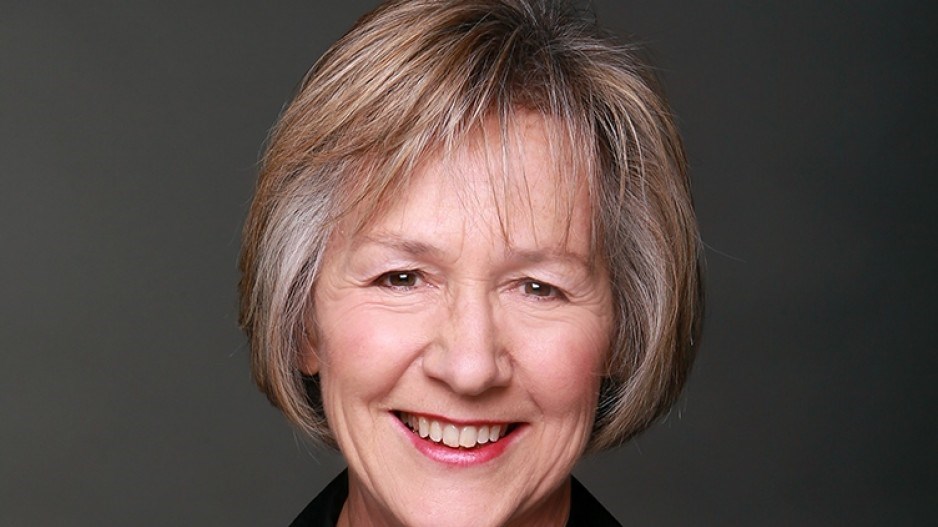Fisheries and Oceans Minister Joyce Murray released findings Friday of an engagement process on its Blue Economy Strategy, which aims to make better use of Canada’s oceans for food production, energy and marine trade.
Murray's ministry consulted 1,600 Canadians to get feedback on its Blue Economy Strategy, which is designed to protect Canada's oceans and maximize economic benefits from it.
But one of the most important ocean-based industries in B.C. -- salmon farming -- remains under a cloud of uncertainty, with investments and hundreds of jobs at risk, as a deadline for renewing 79 federal licences looms. Murray offered no clarity on whether they will be renewed in June, which is when they expire.
“In this What We Heard report, you’ll notice that one of the recurring themes is the link that exists between healthy productive oceans and economic prosperity," Murray said at a press conference Friday with the release of the engagement report.
"Canadians inherently understand that a healthy ocean has more to give, and they firmly believe that if we take care of our oceans, marine life and coastal ecosystems, they will take care of us.”
She said ocean-based industries -- from ports, cruise ships, wild fisheries, aquaculture and offshore oil and gas -- are worth $30 billion annually.
The federal Blue Economy Strategy deals with everything from policies on ports and harbours, to commercial fishing, aquaculture and energy (offshore oil and gas and tidal power).
Surrounded north, west and east by the Arctic, Pacific and Atlantic oceans, Canada has the longest maritime coastline in the world.
The strategy acknowledges the importance of B.C. ports as a gateway to Asia, and the need to enhance port and harbour activities. It also acknowledges challenges faced with Canadian wild fisheries. Wild Pacific salmon stocks are in decline and have been since the 1990s.
As for the most contentious maritime activity in B.C. –salmon farming – the engagement paper acknowledges the investments in innovations the industry has made to improve the sector’s environmental impacts, and notes that those investments are now at risk, due to uncertainty.
“We learned that lack of certainty in this sector has prevented recent investments in innovation and inhibited stability for its workforce," the report notes.
"And yet, many aquaculture businesses are early adopters of advanced technologies and the industry produces less carbon compared to on-land farming. Moreover, aquaculture has higher youth employment and an excellent inclusion and diversity track record among its employees.”
It also notes that, to increase involvement of indigenous people in the blue economy, policies should “meet the needs of communities that want to participate in land-based recirculation and/or shellfish ventures, as well as those who want to pursue and/or remain in finfish salmon operations.”
Murray's mandate from the prime minister is to have a plan in place by 2025 to "transition" from open-net salmon farms in B.C. but doesn't define what the alternatives might be.
Asked if 79 federal salmon farm licences that expire in June will be renewed, Murray gave no clear answer.
“The decision will be made when it needs to be made," she said. "And in the meantime, we are developing a plan. We are consulting with industry and other stakeholders, and my goal ultimately is to have a very strong sustainable fin-fish aquaculture industry here on the coast of British Columbia.
“I’m confident that there are technologies that can be more protective of our wild Pacific salmon, and that is an imperative for me and for we British Columbians -- that we do everything that is in our power to manage to protect wild Pacific salmon.”
DFO’s own scientists have determined salmon farms pose a “minimal risk” to wild stocks.
But Murray said there are many potential risks to wild salmon, and that managing open-net fish farms is one area where government has some control.
“Even should the risks be minimal, it is imperative that we address any manageable risks because of the potential effect on wild Pacific salmon," she said.
“We know that over the last number of years that wild Pacific salmon stocks have been declining from a variety of impacts, some of which are not in our control, and some are in our control. So we have a commitment to transition away from open-net salmon aquaculture and I will be moving forward on that commitment.”




